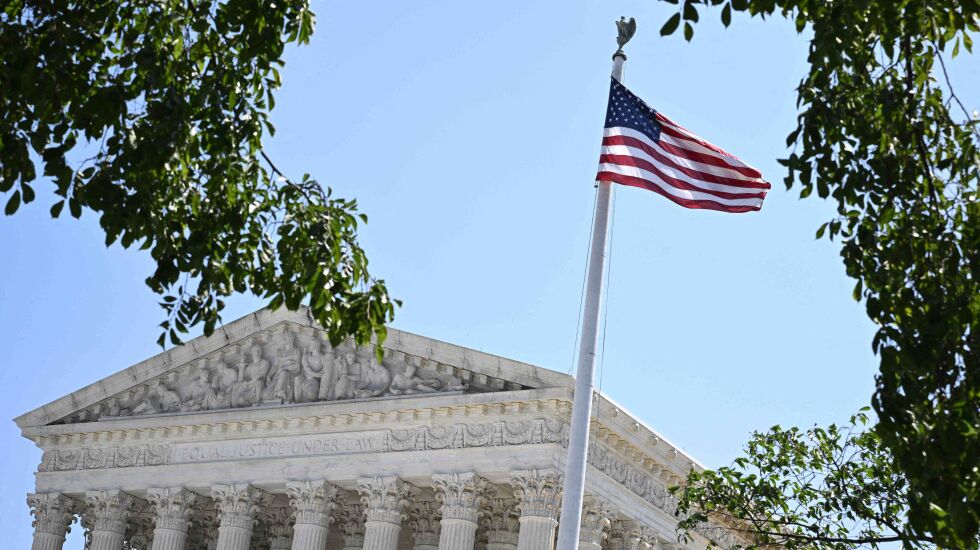
The U.S. Supreme Court is no longer a check and balance against the abuse of power — it now represents an abuse of power. The court recently destroyed the EPA’s ability to protect our nation’s wetlands, further eroding environmental and public health protections.
Sackett v. Environmental Protection Agency concerns an Idaho family that decided to develop their property without a permit, dumping an enormous amount of fill, which disturbed wetlands on their property. The EPA sent them an order halting construction, and they sued.
SEND LETTERS TO: letters@suntimes.com. We want to hear from our readers. To be considered for publication, letters must include your full name, your neighborhood or hometown and a phone number for verification purposes. Letters should be a maximum of approximately 375 words.
While all nine justices agreed the Sacketts should prevail, they divided 5-to-4 on the issue of limiting EPA authority. The majority used the Sacketts’ case to roll back decades of rules established under the 51-year-old Clean Water Act.
A bipartisan majority in Congress passed the Clean Water Act in 1972 because rivers were on fire, fish were dying, and Lake Erie was labeled “functionally dead.” This landmark law has kept 700 billion pounds of pollutants out of our lakes, rivers, streams, wetlands and bays annually. A massive lobbying effort by mining, oil, utilities, agricultural and real estate interests has steadily sought to weaken those protections.
The Sackett ruling decided adjacent wetlands are really only those that are actually touching the waters, an opinion that disregards the science of wetlands. Inland wetlands act like kidneys, filtering pollutants to provide us with clean drinking water.
Wetlands also absorb excess rainfall, reducing flood surges. During dry seasons, wetlands act as a wildlife refuge and supply water for people, fisheries, agriculture and livestock. Last, wetlands capture and store greenhouse gases — and if destroyed, release centuries of stored carbon.
Writing for himself and liberal Justices Sonia Sotomayor, Elena Kagan and Ketanji Brown Jackson, conservative Justice Brett Kavanaugh, said narrowing the Act’s coverage to only adjoining wetlands means some long-regulated adjacent wetlands will no longer be covered by the Clean Water Act. The liberal justices signed on to a separate opinion by Kagan accusing the majority of appointing itself as the national policymaker on the environment, powers that belong to Congress.
Please call or write your congressional representatives to pass legislation declaring the Clean Water Act protects both adjacent and non-adjacent wetlands — and that those policy powers belong to Congress.
Donna Limper, Bloomingdale
What’s your plan on crime?
A recent letter writer seems to be under the peculiar impression that youth boredom, not poverty and decades of disinvestment in Black and brown communities, is the source of crime.
The letter writer asks: “How has that worked out?” in reference to spending millions on youth programs. I ask him how the often hyper-aggressive law enforcement style of Chicago police and their nearly $2 billion a year budget has worked out.
Since the letter writer apparently has an understanding of the city no one else has and isn’t living in “dream land,” I would also ask him what his comprehensive plan to solve our city’s violence is, unless of course he’s simply choosing to be a complainer without solutions of his own.
Alexander Nunez, Mount Greenwood
Book bans take us back decades
In Nazi Germany, librarians faced prison time for having the “wrong” books. In GOP states, librarians face prison time for having the “wrong” books. Any questions?
Bob Chimis, Elmwood Park
Credit card debt should be forgiven, too
If the White House forgives $20,000 of student debt, then I will not pay any more money to my credit card debt. I have $20,000 in credit card debt due to inflation and the need to heat and pay life-sustaining bills.
If government pays their bills, then they can also pay mine. Every American should refuse to pay credit cards if the government is in the business of paying private debts.
Mike Zaczek, Orland Park







